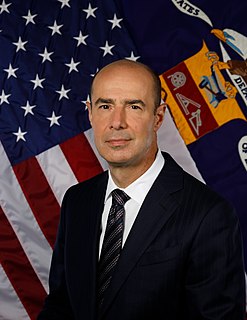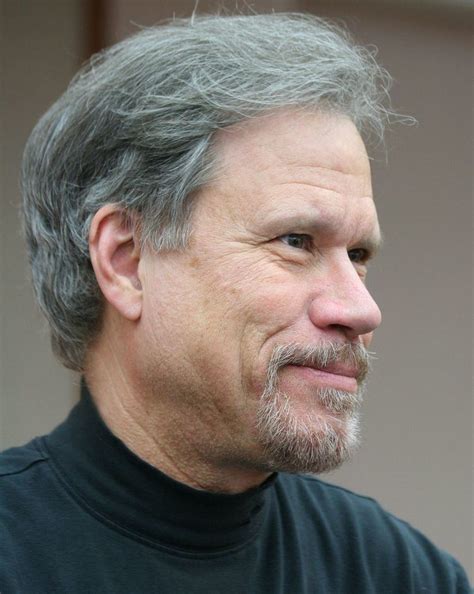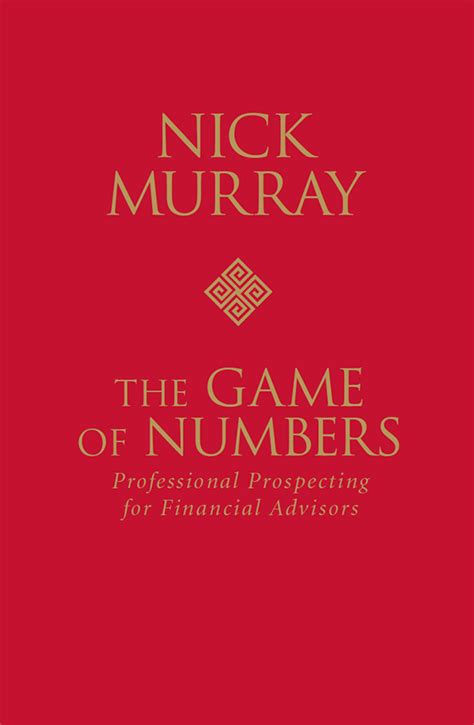Top 1200 Great Financial Quotes & Sayings
Explore popular Great Financial quotes.
Last updated on October 8, 2024.
By any measure, CapitalSource outperformed both our direct competitors and the financial services industry in general, particularly in the context of the near collapse of the financial services industry where 19 of the 20 largest financial institutions in the country either failed or were bailed out by the government.
The industry financial advisers, on average about 85% male, tends to be a more mature financial adviser - so I think in their 50s, really. For so many companies, in their 60s. In fact, there is one company that was telling me they had more financial advisers over the age of 80 than under the age of 30.
It is no exaggeration to say that rising inequality has driven many of the 99 percent into a financial ditch. It also helped spawn the housing bubble that gave us the financial crisis of 2008, the lingering effects of which have forced many OWS protesters to try to launch their careers in by far the most inhospitable labor market we've seen since the Great Depression. Even those recent graduates who manage to find jobs will suffer a lifelong penalty in reduced wages.
FinCEN directs financial institutions to file suspicious activity reports (SARs) to inform law enforcement of certain types of cyber-enabled crime. As the agency charged with protecting the United States from financial crime, FinCEN's guidance does not deem financial institutions who process such transactions to be involved in a criminal activity.
In terms of my profession, I'm passionate about financial literacy. I want to live in a financially literate society. I want kids to understand the importance of savings and investing. I want to try to replicate the great savers who came out of the Depression, the best savers the country has ever seen. It's crucial that people understand the importance of financial literacy, because it's actually life saving.
Anyone interested in the past, present, or future of banking and financial crises should read The Bankers' New Clothes. Admati and Hellwig provide a forceful and accessible analysis of the recent financial crisis and offer proposals to prevent future financial failures. While controversial, these proposals--whether you agree or disagree with them--will force you to think through the problems and solutions.
The Harper Government is committed to ensuring that seniors have the skills they need to make solid financial choices. Seniors today face an increasingly complex financial marketplace, and it will take the combined efforts of public and private sector organizations to help seniors navigate the many financial choices they face. The start of Financial Literacy Month is an excellent opportunity to thank the Canadian Bankers Association and encourage other private sector organizations to take an active role in providing financial literacy support to Canada's seniors.
As value investors, our business is to buy bargains that financial market theory says do not exist. We've delivered great returns to our clients for a quarter century-a dollar invested at inception in our largest fund is now worth over 94 dollars, a 20% net compound return. We have achieved this not by incurring high risk as financial theory would suggest, but by deliberately avoiding or hedging the risks that we identified.
The global financial crisis is a great opportunity to showcase and propagate both causal and moral institutional analysis. The crisis shows major flaws in the way the US financial system is regulated and, more importantly, in our political system, which is essentially a bazaar of legalized bribery where financial institutions can buy themselves the governmental regulations they want, along with the regulators who routinely receive lucrative jobs in the industry whose oversight had formerly been their responsibility, the so-called revolving-door practice.




















































